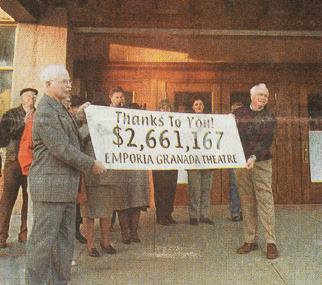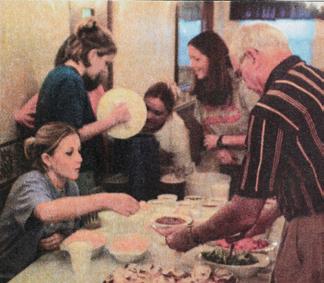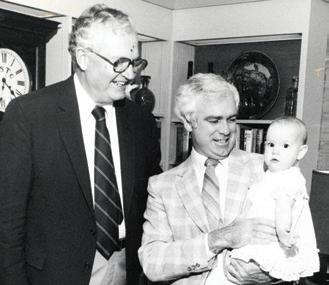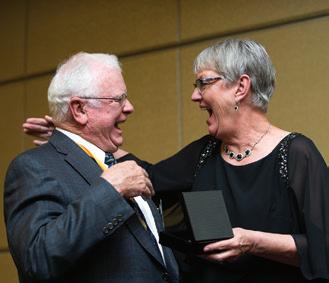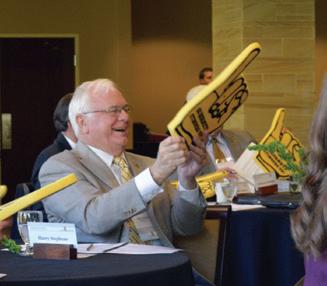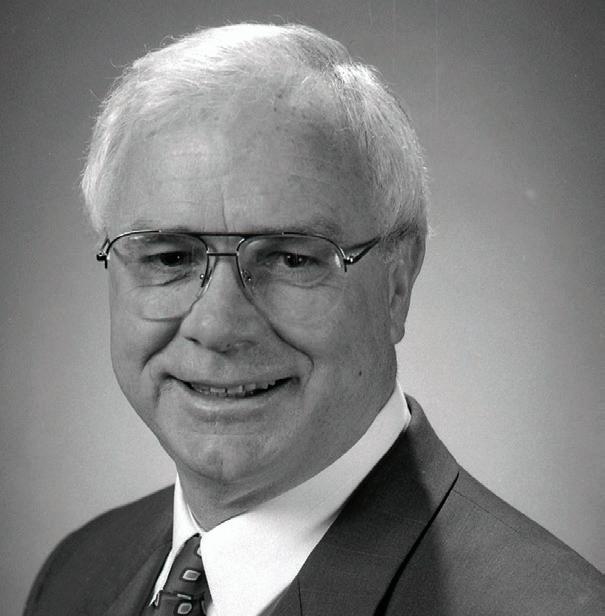
5 minute read
Outstanding Recent Graduates
Building Community
The Legacy of Dr. Harry Stephens
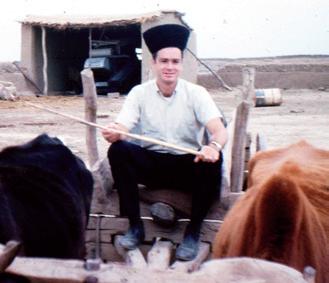
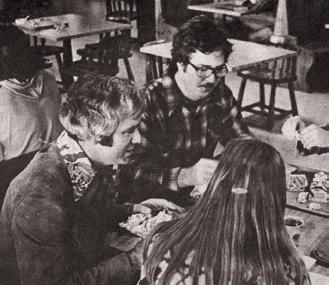
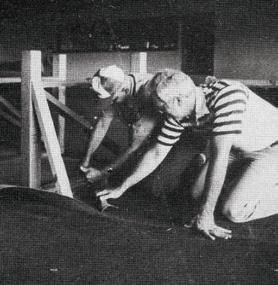
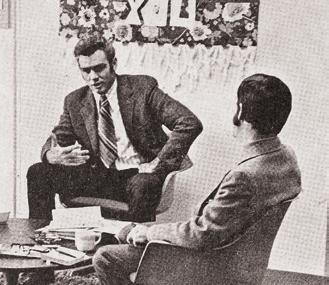
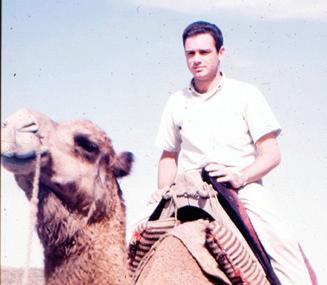
Emporia State University lost a legend in the passing of Dr. Harry Stephens on August 29, 2020. Affectionately known as “Doc Stephens,” Harry expertly honed relationships throughout his personal and professional life and left a legacy marked by commitment and dedication to both the university and community. Dr. Stephens grew up on a farm near Moline, Kansas. Those early years observing the tolerance, fairness, love and loyalty he saw in his parents greatly shaped Harry and the way he lived his life. From the start, he was hardworking and loved helping others. One of four boys in a close-knit family, he was always involved—with the farm, with 4-H, with his community. In 1960, Harry joined a new community at Emporia State, then known as the Kansas State Teachers College, as a biology student. A dedication to helping others led Harry to KSTC with plans to attend medical school. But as graduation drew closer, he began to realize medical sciences were not where he was supposed to be. As a student assistant in the Dean’s Office, Harry sought the advice of then Dean of Men, Dr. Vince Bowman (BS 46-Industrial Education). His encouragement, coupled with the offer of a graduate position in the Dean’s Office, changed Harry’s career ambitions. He completed his Bachelor of Arts degree in Biology in 1965 and the next year began a Master of Science degree in Counselor Education, which he completed in 1972. Sharon Stephens (BSE 65-English, MA 67-English), Harry’s wife whom he met in a genetics class during their undergraduate degree work, says that Harry never looked back after he decided to change career paths. “Over the years at ESU, he worked with diverse groups of young people—encouraging them in good decision making and investing himself in their growth. He rejoiced in their successes and helped them regroup after failures. I think he saw himself as a mentor, and it was a role he cherished.”
As a student, Harry was involved in many organizations, and he carried those experiences with him to his career. One such experience was his involvement with the International Farm Youth Exchange program in 1963, a life-changing event. At age 21, Harry traveled to Iran where he worked in five rural villages for weeks at a time, communicating with his newly acquired Farsi. This experience, according to Sharon, was one of the defining events that shaped him and his philosophy as an educator and mentor. “He treasured his time in Iran, and he loved the people he met there. He saw what is possible for those who are different from ourselves and also what was possible for himself.” Harry acted as a student leader in many groups. As president of the Sigma Tau Gamma fraternity Delta Chapter, he helped build the organization by creating a supportive environment among its members. Fraternity brother and friend, Doug Gregg (BSE 68-Business Education), recalls Harry’s influence as a new member. “Harry was out front mentoring each of us not only on what to expect from the fraternity, but what it was going to take for us to be successful in the pursuit of our college education. Harry’s goal was giving each [student] the opportunity to learn how, and demonstrate how, to positively express themselves to ultimately enhance their own contributions.”
After earning a Ph.D. from the University of Northern Colorado, Harry continued his student affairs work with the Hornet Family, serving in a number of positions throughout his time, including dean of students and vice president for Student Affairs. He continued his involvement in campus groups as an advisor and mentored many students throughout his 38 years of service to ESU. Former mentee and fellow Sig Tau Josiah D’Albini (BS 14-Sociology) remembers Harry, or “Doc” as he was called by many, as an altruist in every way. “Everything Harry did was to better something for everyone else. His career in Student Affairs, and the impact that he has had on thousands of students, Sig Taus and so many others, is a shining example of the professional that I aspire to be.”
The encouragement he put behind every student defined his career and his legacy as a member of his community. His natural ability to connect with everyone he met was one of the many qualities that made him successful. But what made Harry truly special was his ability to help others see and develop the skills to pursue what was meaningful to them. ESU recognized his work for the university and its students, honoring him with the Campus Pride Award (1994), the ESU Service Citation Award (2008) and the President’s Medallion for the Common Good (2015). Beyond Emporia State University, Harry represented the 17th District in the Kansas Senate, acted as treasurer of the Board of Directors for the Granada Theatre in downtown Emporia and worked with many organizations in the community, including the Kansas Children’s Service League, Friends of the Flint Hills Community Health Center and the Humane Society of the Flint Hills.
Harry’s impact on the community and those in it inspired many. Jason Fanning (BSB 95-Accounting), fellow ESU Board of Trustee member, notes that Harry was always about doing. “Dr. Stephens was a role model, and he led by example. He was an active ESU Foundation Trustee, served on many committees and was equally involved in the community like with the Granada Theater restoration. Whether it was a project at the fraternity house or doing chores on his farm, he was always willing to roll up his sleeves and dig in.” Harry lived his life in the way many of us wish to do. His life philosophy, as put by Sharon, the person who knew him best: ‘Live life fully and positively. Keep faith. And most of all, remember we are all part of each other and of the world around us.’ To learn more about Dr. Harry Stephen’s legacy, at Emporia State and beyond, visit emporia.link/HarryStephens or scan the code to the right.
